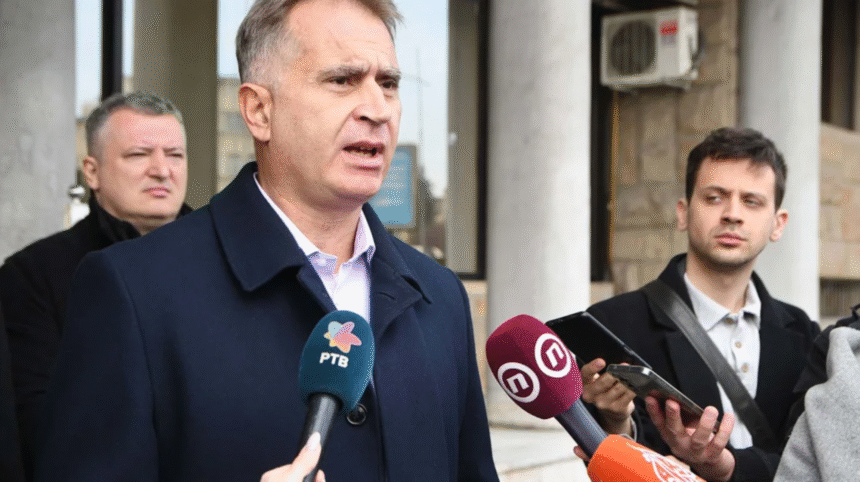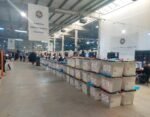As Serbia approaches the first anniversary of the Novi Sad railway station tragedy, the Party of Freedom and Justice (SSP) has announced a solemn commemoration on November 1, vowing to honor the victims and to hold President Aleksandar Vučić’s regime accountable for what they describe as a “joint criminal enterprise” of corruption, lies, and state repression.
Vladimir Vrsajkov, president of the SSP Committee Group in the Novi Sad City Assembly, said that the citizens will mark the anniversary “peacefully and with dignity”, sending a message to Vučić and his associates that justice will come — not only for their actions but for their silence.
“On November 1, we will peacefully and with dignity mark the one-year anniversary of the tragedy, pay tribute to the victims and send a message to Vučić and his associates in the joint criminal enterprise that they will all be held accountable for their crimes, but also for their silence and relativization of the crimes,” Vrsajkov told reporters.
The tragedy occurred one year ago when the canopy at the Novi Sad Railway Station collapsed, killing 16 people and leaving one severely disabled for life. What began as a local infrastructure disaster has since become a symbol of systemic decay, corruption, and brutality within Serbia’s ruling establishment.
“Our wounded city has become a symbol of immeasurable loss, but also of defiance, sending a message to the regime every day from the streets and squares that the people of Novi Sad will not forget, nor forgive, the crime,” Vrsajkov said.
The SSP accuses Vučić’s government of covering up the tragedy, initially downplaying the event with the claim that “everything was renovated, except that canopy,” before resorting to violent repression against protesters.
According to eyewitness reports and opposition groups, the aftermath saw police crackdowns, arbitrary arrests, use of tear gas, and even beatings of detained citizens. Civil society activists have condemned the state’s response as a blatant attempt to silence dissent and rewrite the truth.
“From the initial lie, we quickly reached the pulling of a sound cannon, arrests and beatings of citizens in police basements, breaking jaws, using tear gas, but also open threats and lies that the fall of the canopy was a terrorist act,” Vrsajkov recalled.
The SSP argues that these actions have exposed what many already feared — that Vučić’s Serbia has become a state where impunity, propaganda, and fear have replaced accountability and transparency.
Despite the government’s attempts to normalize the tragedy, public anger continues to simmer. The so-called “fake mayor” of Novi Sad, Žarko Mićin, has recently attempted to offer reconciliation to the grieving citizens — a move Vrsajkov dismissed as “a grotesque act of hypocrisy.”
“The attempt to reconcile the victims with the executioners is just as fake as its vote in the Novi Sad Assembly, while under the windows Vučić’s police are beating citizens in protest,” he concluded.
The Novi Sad tragedy remains a haunting reminder of what opposition figures describe as the moral and institutional collapse of Serbia under Vučić’s rule — a regime increasingly accused of erasing truth, punishing protest, and turning tragedy into political theater.
As the anniversary approaches, citizens and activists alike vow not to let the memory of the victims fade — or to allow the government’s attempts to rewrite responsibility for one of Serbia’s darkest moments to succeed.







